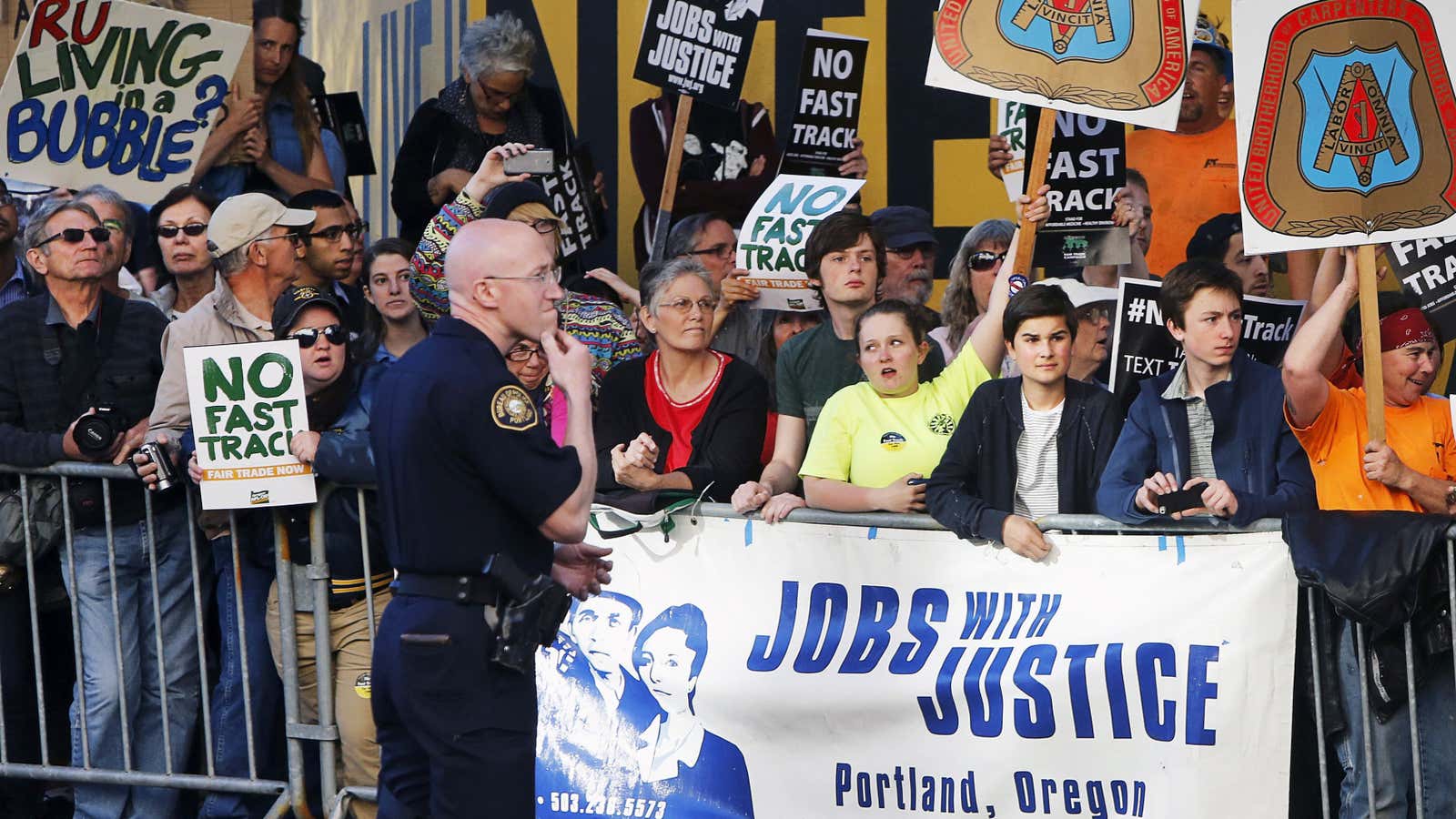US president Barack Obama traveled to Nike headquarters in Beaverton, Oregon, today (May 8) to promote his big trade deal, the Trans-Pacific Partnership. The pact would reduce tariffs and lower other trade barriers between the US and 11 other nations, mostly in Asia and Latin America.
The president has been touting the deal as good for American workers, and Nike certainly has been playing along. The company has said that if the deal goes through, it will invest in more manufacturing in the US, creating up to 10,000 advanced manufacturing and engineering jobs over the next decade as well as 40,000 indirect hires through the business it gives to domestic suppliers and service companies.
The whole pageant is laden with symbolism. Nike is the quintessential American brand, outfitter of the country’s top athletes and millions of its kids. It’s also the ultimate globalized company. All-American Nike doesn’t make any of its sneakers in the US. They’re made almost entirely in those regions that the TPP would facilitate trade with, which makes Nike exactly the sort of company Obama wants supporting the TPP.
But progressives, some of whom protested yesterday at a Democratic National Committee event in Portland, Oregon, aren’t happy about any of it. They claim that trade deals like this one send more US manufacturing jobs overseas, to countries with lax environmental and labor regulations, where US companies like Nike can produce their goods on the cheap.
They’ve got a point. As Quartz has reported, economists believe the TPP will tilt the US even more toward high-skilled service jobs and reduce the number of low-skill manufacturing jobs in the country—a trend that some people have argued for decades is leading to an economically polarized country with a shrinking middle class.
From that standpoint, Nike actually might not have been the best company for Obama to have visited if promoting US jobs is his aim. While Nike has about 26,000 employees at home, it indirectly employs more than 1 million workers abroad through its manufacturing, about a third of them in Vietnam. If the TPP goes through, it would become even easier and cheaper for Nike to manufacture overseas. Those 10,000 “advanced” manufacturing jobs the company would theoretically create in the US would still represent fewer than 10% of all the workers engaged in making Nike goods.
For Nike, probably the main draw of the TPP is that it would make the company’s sneakers and clothes cheaper in the markets that are part of the agreement, notably Japan, the world’s fourth largest economy and a major fashion consumer. Japanese customs currently puts tariffs as high as 27% on different kinds of athletic footwear. If those are reduced, it could make Nike’s products much more affordable to Japanese shoppers and likely boost sales in the country. Repeat that across all the countries in the TPP, and Nike stands to gain quite a bit. (We’ve reached out to Nike for a comment and will update this post as warranted.)
Nike would also pay less on imports of its good into the US, reducing prices for American consumers and helping its sales at home.
So expect to hear a lot of talk these coming days about what the TPP can do for US manufacturing jobs—and also for US consumers. But remember that the real attraction for multinationals like Nike is better access to foreign markets. That’s what most US companies supporting the deal are looking forward to. And that’s exactly what brought Obama to Beaverton.
